"Scholars and women are continually perplexed in our attempts to articulate the overlaps between the `feminist' and the `feminine' and to understand the historical transformations of these
terms, as well as the recent development of `postfeminism(s)' and new forms of femininities. In this spectacular and important new work of feminist film theory, Radner significantly advances
the debate about feminism and its `posts' with her theory of neo-feminist culture. Using popular Hollywood films effectively to illustrate her argument. Radner traces the history of our
culture's simultaneous incorporation and transformation of feminism in its political, personal and social dimensions. Her theoretically sophisticated analysis of the complicated influence
feminism has had on our popular culture and thinking will be equally useful to cultural and film theorists, students and general readers. Neo-Feminist Cinema is culturally sophisticated film
theory at its best." Andrea L. Press, University of Virginia, author of Women Watching Television, Speaking of Abortion, The New Media Environment and co-editor of The Communication
Review
What lies behind current feminist discontent with contemporary cinema?
Through a combination of cultural and industry analysis, Hilary Radner's Neo-Feminist Cinema: Girly Films, Chick Flicks and Consumer Culture shows how the needs of Conglomerate Hollywood have
encouraged an emphasis on consumer culture within films made for women. By exploring a number of representative "girly films," including Pretty Woman, Legally Blonde, Maid in Manhattan, The
Devil Wears Prada and Sex and the City: The Movie, Radner proposes that rather than being "post-feminist," as is usually assumed, such films are better described as "neo-feminist." Examining
their narrative format, which revolves around the story of an ambitious unmarried woman who defines herself through consumer culture as much as through work or romance, Radner argues that these
films exemplify neo-liberalist values rather than those of feminism.
As such, Neo-Feminist Cinema offers a new explanation as to why feminist-oriented scholars and audiences who are seeking more than "labels and love" from their film experience have viewed
recent "girly films" as a betrayal of second-wave feminism, and why, on the other hand, such films have proven to be so successful at the box office.
-

Melodrama, Trauma, Mind-games: Affect and Memory in Contemporary American Cinema
$1,753 -
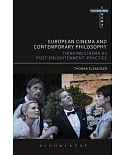
European Cinema and Continental Philosophy: Film As Thought Experiment
$5,400 -

Naked Under a Waterfall: The Craft of Production Sound Mixing for Film
$1,188 -

The Bible on Silent Film: Spectacle, Story and Scripture in the Early Cinema
$1,575 -

Ava Gardner: A Life in Movies
$1,050 -

Philosophy and the Patience of Film in Cavell and Nancy
$4,500 -

An Introduction to European Horror Cinema
$1,575 -

Anthology Film and World Cinema
$1,348 -

The Audacious Josephine Baker: Blackness, Power and Visual Pleasure
$1,925 -

Cinema’s Inter-Sensory Encounters: Krzysztof Kieslowski and Claire Denis
$5,400 -
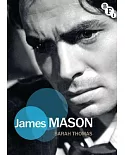
James Mason
$1,215 -

Studying British Cinema: The 1980s
$1,463 -

New Transnationalisms in Contemporary Latin American Cinemas: New Transnationalisms
$4,950 -
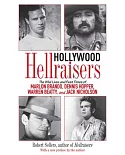
Hollywood Hellraisers: The Wild Lives and Fast Times of Marlon Brando, Dennis Hopper, Warren Beatty, and Jack Nicholson
$595 -
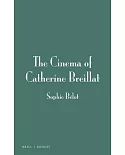
The Cinema of Catherine Breillat
$5,040 -
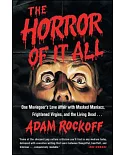
The Horror of It All: One Moviegoer’s Love Affair With Masked Maniacs, Frightened Virgins, and the Living Dead
$665 -

I Fought the Sex Ray: An Innocent Jock’s Journey to Planet Porno
$978 -

The Monster Movies of Universal Studios
$1,710 -
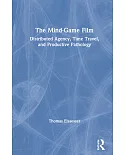
Melodrama, Trauma, Mind-games: Affect and Memory in Contemporary American Cinema
$5,625 -

The Encyclopedia of B Westerns
$3,825

